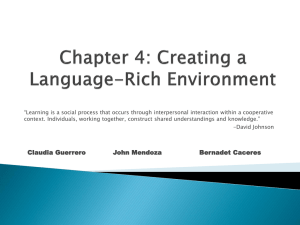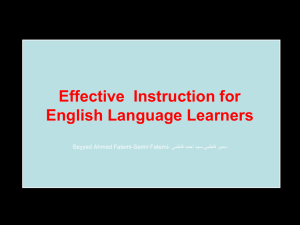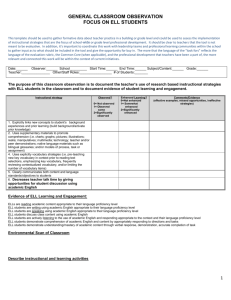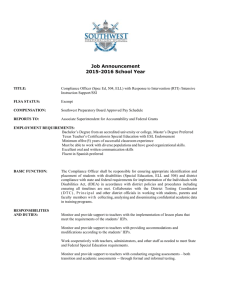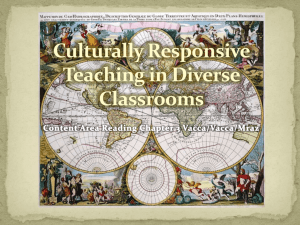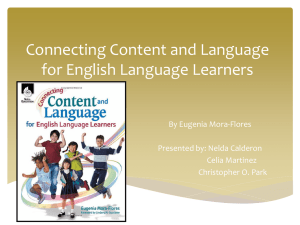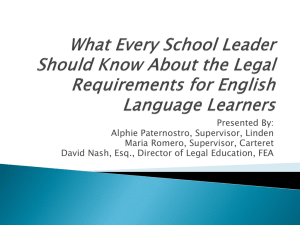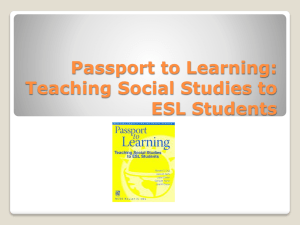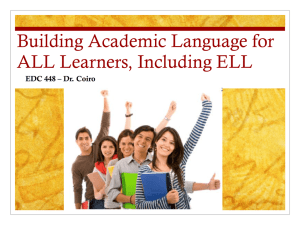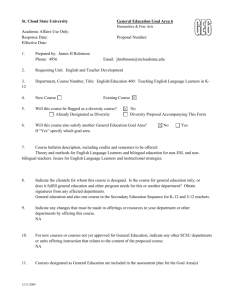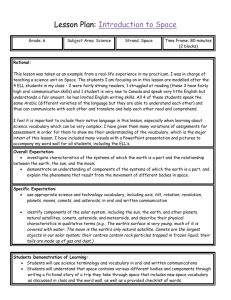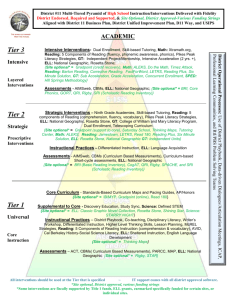here - KYTESOL
advertisement
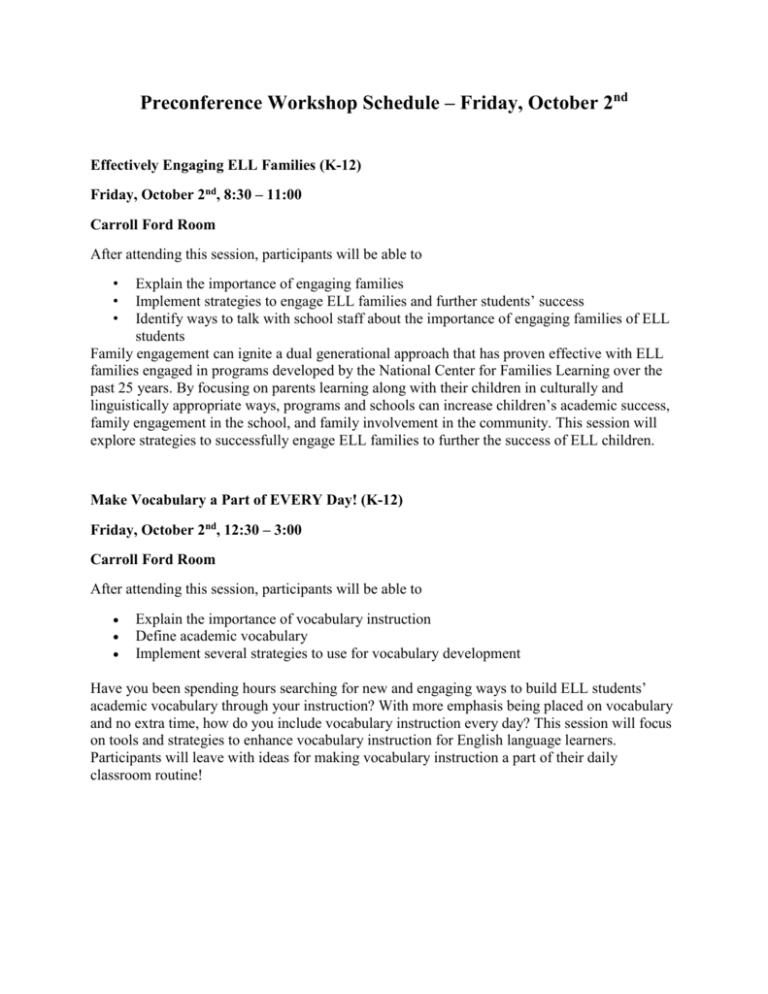
Preconference Workshop Schedule – Friday, October 2nd Effectively Engaging ELL Families (K-12) Friday, October 2nd, 8:30 – 11:00 Carroll Ford Room After attending this session, participants will be able to • • • Explain the importance of engaging families Implement strategies to engage ELL families and further students’ success Identify ways to talk with school staff about the importance of engaging families of ELL students Family engagement can ignite a dual generational approach that has proven effective with ELL families engaged in programs developed by the National Center for Families Learning over the past 25 years. By focusing on parents learning along with their children in culturally and linguistically appropriate ways, programs and schools can increase children’s academic success, family engagement in the school, and family involvement in the community. This session will explore strategies to successfully engage ELL families to further the success of ELL children. Make Vocabulary a Part of EVERY Day! (K-12) Friday, October 2nd, 12:30 – 3:00 Carroll Ford Room After attending this session, participants will be able to Explain the importance of vocabulary instruction Define academic vocabulary Implement several strategies to use for vocabulary development Have you been spending hours searching for new and engaging ways to build ELL students’ academic vocabulary through your instruction? With more emphasis being placed on vocabulary and no extra time, how do you include vocabulary instruction every day? This session will focus on tools and strategies to enhance vocabulary instruction for English language learners. Participants will leave with ideas for making vocabulary instruction a part of their daily classroom routine! Postsecondary Reading: Strategies to Teach and How to Teach Them (Higher Education) Friday, October 2nd, 8:30 – 11:00 Stanley Room After attending this session, participants will be able to Consider the causes of comprehension problems Explain the value of explicit instruction Implement multiple reading strategies with students Adult English learners benefit from learning reading strategies as they are learning to read in English. This workshop offers a brief overview of research, focusing on common reading problems that may explain why adult English learners struggle with their class work and sometimes make little progress over time. This session introduces the components of reading and several classroom strategies. Come and try out some easy-to-use strategies you can introduce and use with your students to help them become better readers! Academic Vocabulary: A Bridge to Improved Comprehension (Higher Education) Friday, October 2nd, 12:30 – 3:00 Stanley Room After attending this session, participants will be able to Explain the importance of systematic vocabulary instruction Define academic vocabulary Implement several strategies to use for vocabulary development Could you be described as atrabilious? Atrabilious may be a word you don’t use regularly and one your students don’t need to know, but how do you decide what words to teach? What is academic vocabulary? What strategies can you use to teach vocabulary? How can you find time to make systematic vocabulary instruction a part of your classroom routine? Regular vocabulary instruction can help build the vocabulary your students will need. Come have fun with words and explore these questions about vocabulary in this interactive session! About the National Center for Families Learning The National Center for Families Learning (NCFL) is a national nonprofit organization dedicated to helping adults and children learn together. NCFL creates and deploys innovative programs and strategies that support learning, literacy, and family engagement in education. From the classroom to the community to the digital frontier, NCFL collaborates with educators, advocates, and policy-makers to help families construct hotspots for learning wherever they go. For more information on NCFL’s 26-year track record, visit www.familieslearning.org.
